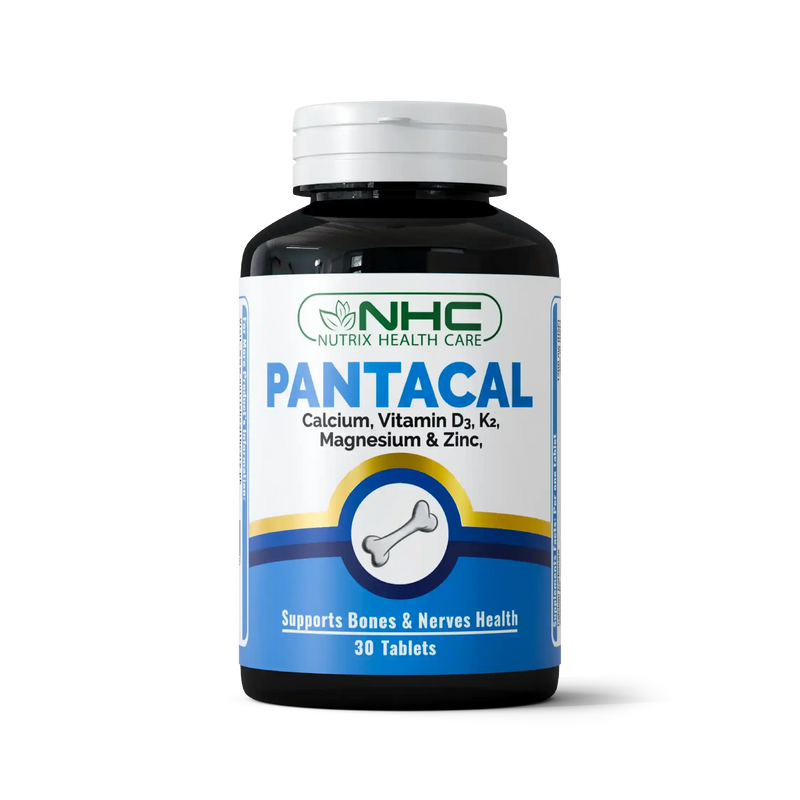Top 8 Effective Tips to Lose Weight with PCOS
Research shows that 8 to 13% of women during their reproductive age are struggling with Polycystic Ovary Syndrome. This condition is characterized by hormonal imbalances, development of small cysts in ovaries, irregular periods, and difficulty in conception.
PCOS also leads to excessive weight gain which can be hard to manage. If you are also a female struggling with PCOS, then this blog is for you.
The Relation between PCOS & Weight Gain
According to the Obesity Action Coalition, women with polycystic syndrome have a greater risk of obesity and women with obesity are more susceptible to this condition.
Females with hormone imbalances are likely to have increased levels of male hormones and less sensitivity to insulin, affecting glucose metabolism. Insulin is an essential hormone for converting sugar into energy.
This is important for regulating the body's vital functions.
Research suggests that up to 70% of women with PCOS experience insulin resistance, meaning that their cells can’t utilize insulin effectively. They either have too much insulin or it does not work properly, resulting in weight gain.
The high insulin levels stimulate the ovaries to produce more male hormones called androgens. These high androgen levels result in symptoms like acne, irregular periods, and weight gain.
8 Useful Tips for Weight Loss with PCOS
Currently, this condition has no cure. However, certain dietary and lifestyle changes can help you manage the symptoms effectively, especially to help those struggling with being overweight and obese. With adequate modifications, affected females can enhance their overall quality of life.
1. Decrease Carbohydrate Intake
Carbohydrates are easily metabolized into sugar. Increased carb consumption can lead to a spike in blood sugar levels, which impacts insulin release from the pancreas. High insulin levels are linked to weight gain and increased body fat. Therefore, lowering carb intake can ultimately reduce the chances of weight gain.
2. Increase Fiber Intake
Fiber is a complex carbohydrate the body cannot digest. It contributes to the feeling of being full for a long time. Increasing fiber intake can lower blood sugar levels, thereby improving insulin sensitivity.
Adding 25g of fiber daily to your diet can help reduce insulin resistance, leading to more efficient weight loss. Some high-fiber foods are strawberries, oats, raspberries, pears, and carrots.
3. Eat Plenty of Protein

Protein aids in weight loss by stabilizing blood sugar levels and promoting satiety, leading to feeling full for longer periods after a meal. It curbs appetite by regulating hunger hormones and reducing cravings. Foods rich in protein, such as eggs, nuts, meat, and seafood, facilitate effective weight loss.
4. Always Choose Healthy Fats
Always choose healthy fats like monounsaturated and polyunsaturated over margarine and saturated fats. They aid hormone production, satiety, and vitamin absorption, helping to manage obesity. Include sources like olive oil, nuts, and seeds in your daily diet for a healthier life.
5. Eat Anti-Inflammatory & Fermented Foods
Women with hormonal imbalances often experience compromised gut and immune health. A healthy gut plays an important role in metabolism and weight management.
Therefore, including anti-inflammatory and fermented foods like kimchi, miso, yoghurt, Kombucha, and natto in the diet can boost beneficial gut bacteria and reduce inflammation.
6. Be Physically Active
Incorporate physical activity, such as brisk walking, swimming or exercise into your daily routine to improve overall health. Exercise is a key strategy for effective weight loss. It also helps to manage stress levels (cortisol).
7. Get Adequate Sleep

Women with hormone imbalances may experience sleep disturbances that can increase stress and hunger levels.
Studies indicate that inadequate sleep can disrupt hormonal balance. This imbalance can contribute to weight gain and obesity. Therefore, prioritizing enough sleep can help regulate hormones and support healthy weight management.
8. Try to Manage Stress Levels
Stress is a significant risk factor for weight gain in females. It triggers the release of cortisol and high cortisol levels are associated with insulin resistance and weight gain.
Incorporating stress-management techniques like yoga, breathing exercises, and meditation into daily routines can help lower stress, making the weight loss journey more achievable.
Conclusion
PCOS is a complex syndrome with various health challenges like inflammation, period irregularities, and weight gain. The 8 weight loss effective tips include: decreasing carb intake, eating more protein and fiber foods, choosing healthy fats and anti-inflammatory foods, trying to manage stress, sleep, and being physically active.
By adopting healthy habits and making lifestyle changes, females with PCOS can overcome the challenges and achieve their desired goals.
FAQs
Why is it difficult to lose weight with PCOS?
This condition is associated with various complications and factors, including hormonal imbalance, mental stress, inadequate sleep, and difficulty controlling appetite, making it challenging to lose weight.
How to stop PCOS weight gain?
You can deal with this weight gain by making lifestyle changes, such as eating healthy foods, managing stress, getting enough sleep, and controlling your appetite.
What foods are good for PCOS weight loss?
If you have PCOS, it is advisable to include healthy fats, high-fiber, and lean protein in your diet, along with anti-inflammatory foods, which help manage its symptoms.
References
who.int/news-room/fact-sheets/detail/polycystic-ovary-syndrome?gad_source=1&gclid=Cj0KCQjww5u2BhDeARIsALBuLnOmddOdfB8jNbpZFu6CjBhLRynfoQOaAOs9Bqm8h67BajAYSf_b4UAaAvc7EALw_wcB
healthline.com/health/womens-health/natural-treatment-pcos#probiotics
medicalnewstoday.com/articles/326560
obesityaction.org/resources/polycystic-ovarian-syndrome-pcos-and-obesity/


